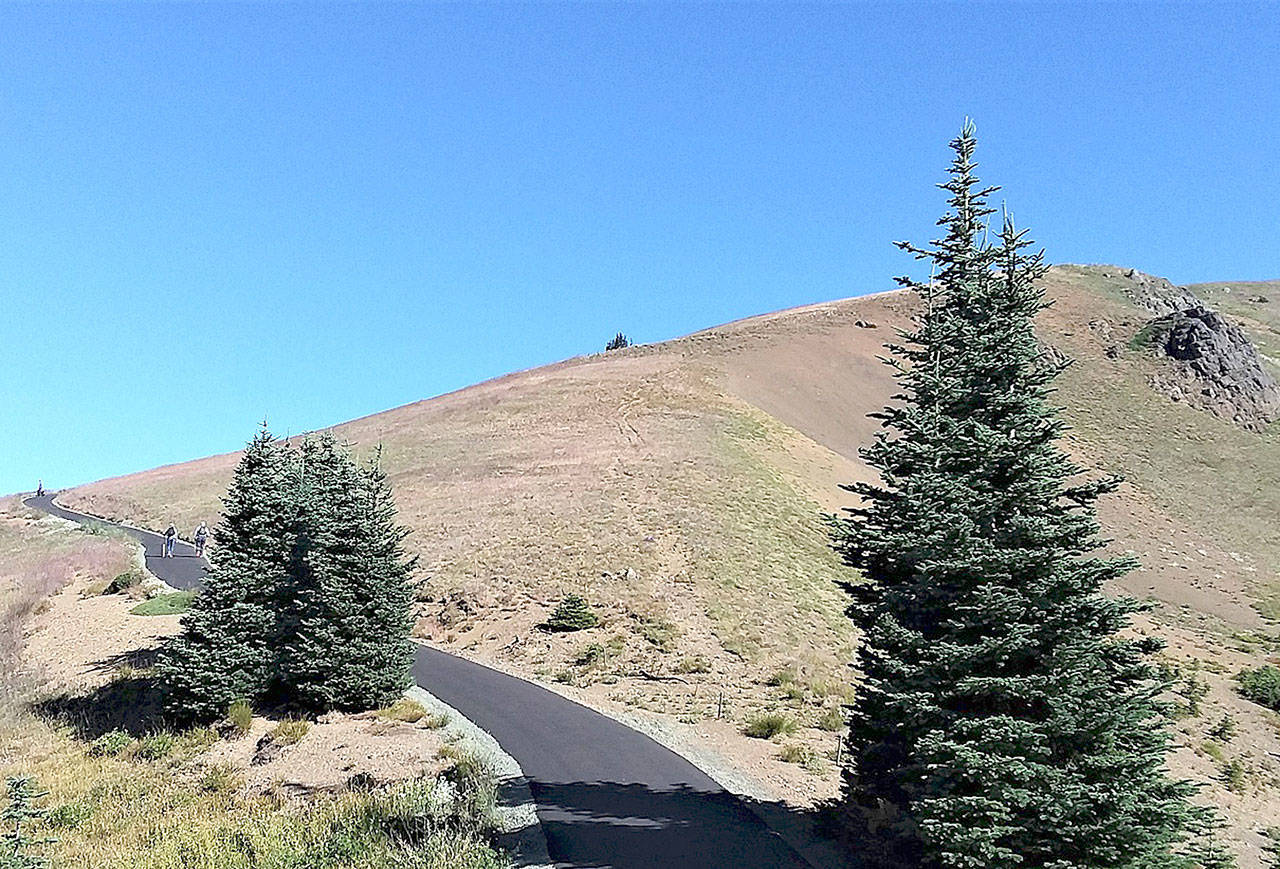For people who haven’t been able to get to the peak of Hurricane Hill for two years, the newly refurbished trail to the top of the mountain is finished and is open seven days a week.
It’s the first time the trail has been fully open every day since 2017.
The 1.6-mile-long hike that climbs 650 feet uphill to 5,757-foot-high Hurricane Hill has faced periodic closures in 2018, 2019 and 2020 either for trail work or because the parking lot was being used as a staging area for capturing nonnative mountain goats.
Some work is continuing with interpretive signs and benches still being installed by park crews, but the trail will remain open during that work.
Part of the project was to make the first 0.4 miles of the trail ADA-accessible for people with physical disabilities, said Olympic National Park Public Information Officer Penny Wagner.
The later part of the trail, where it becomes steeper during the climb to the top of Hurricane Hill, is not ADA-accessible, Wagner said.
The bulk of the work was done during the past two years. The trail was opened briefly for a few days earlier this summer, but it closed in July for goat captures.
The trail opened for good on Aug. 10.
“The end result was worth it,” Wagner said.
Part of the work involves the building of retaining walls and paving the entire distance of the trail to prevent erosion on the hillsides and to protect vegetation, she said.
Wagner said the paving isn’t new. The trail was paved long ago but had fallen into disrepair from age and erosion.
“It had been paved initially, but it had become so degraded over time, you could only see remnants,” she said.
The trail was widened to 8 feet to allow plenty of room for people going in opposite directions to pass each other.
There also are large humps in the steep parts of the trail that at first appear to be speed bumps, but they are actually for drainage, Wagner said.
She added the trail is closed to bicycles and skateboards, and dogs are not allowed. The area has a lot of wildlife, including deer and marmots, and dogs conflict with the wildlife.
“We do have places in the park where people can take their dogs,” she said.
Also new are some large interpretive signs at the top of the mountain, detailing the geographic points that can be seen to the north such as Port Angeles, Victoria, B.C., the Strait of Juan de Fuca, etc., and another large sign identifying the peaks of the Olympics.
Funding for the first two phases of the project came from the National Park Service Repair and Rehabilitation program. The trail work during those phases was completed by park staff.
The third phase was funded by park entrance fee revenue and included the paving and re-vegetation work, Wagner said.



